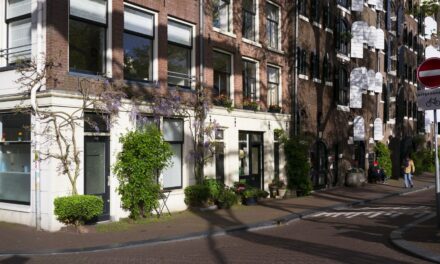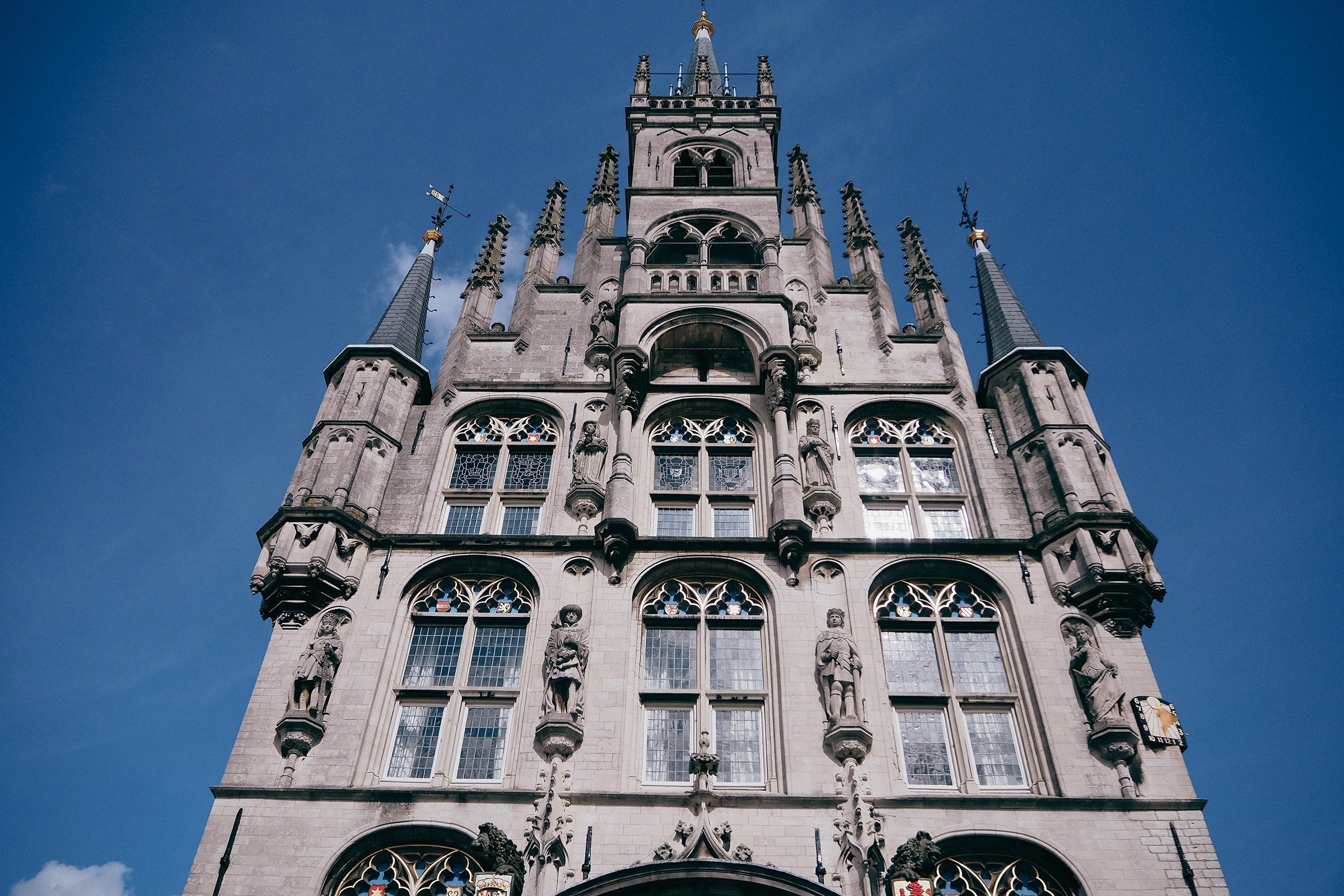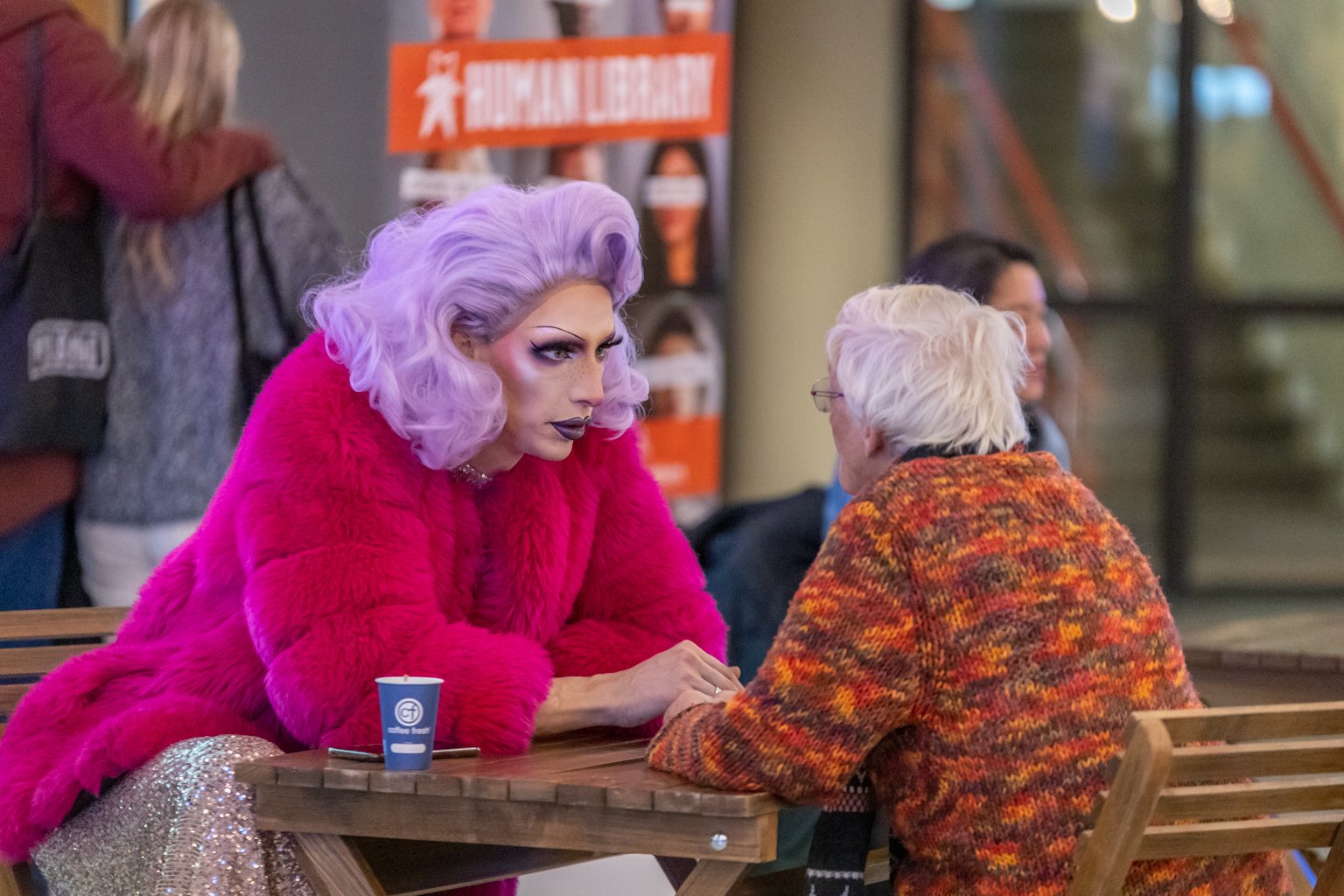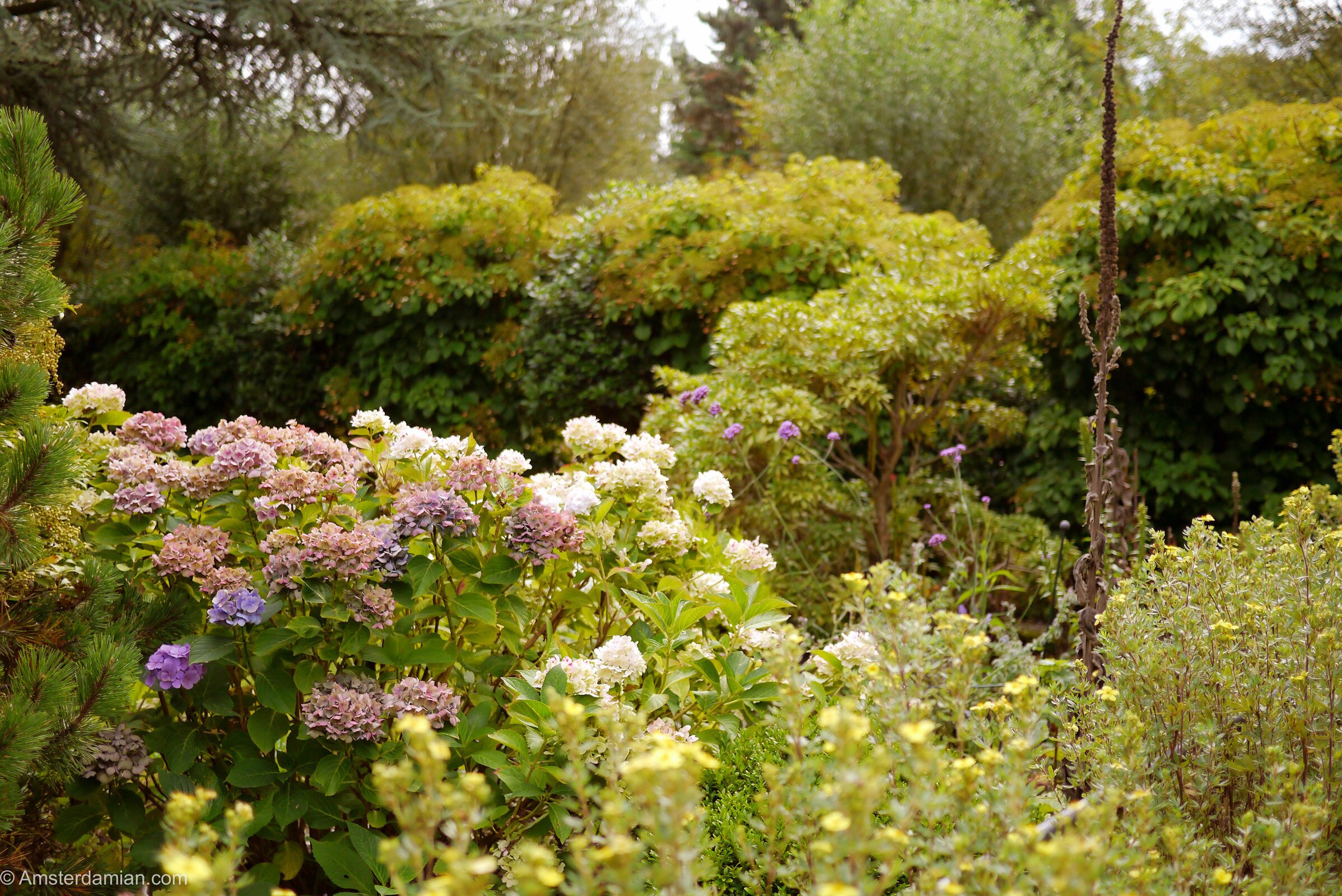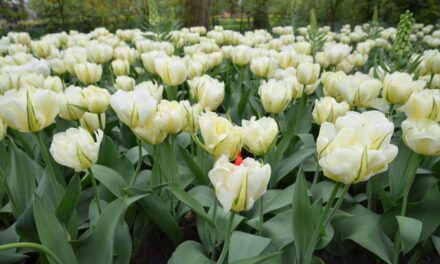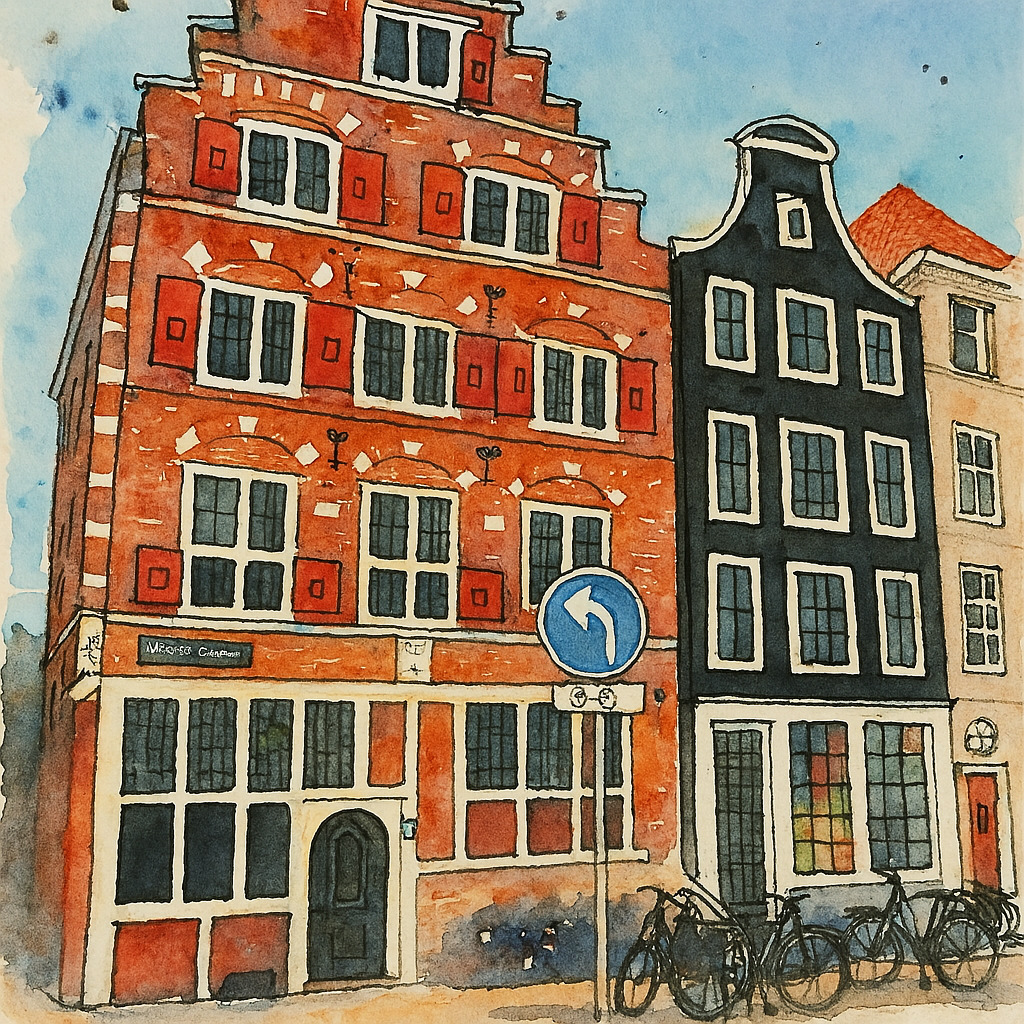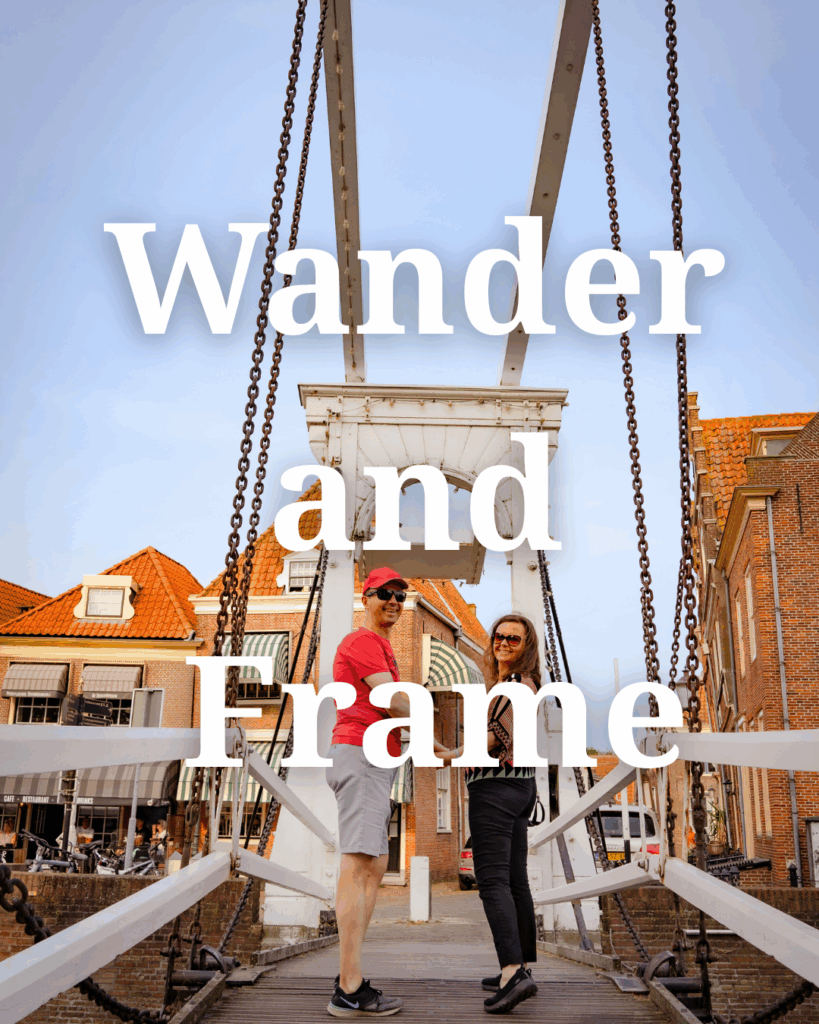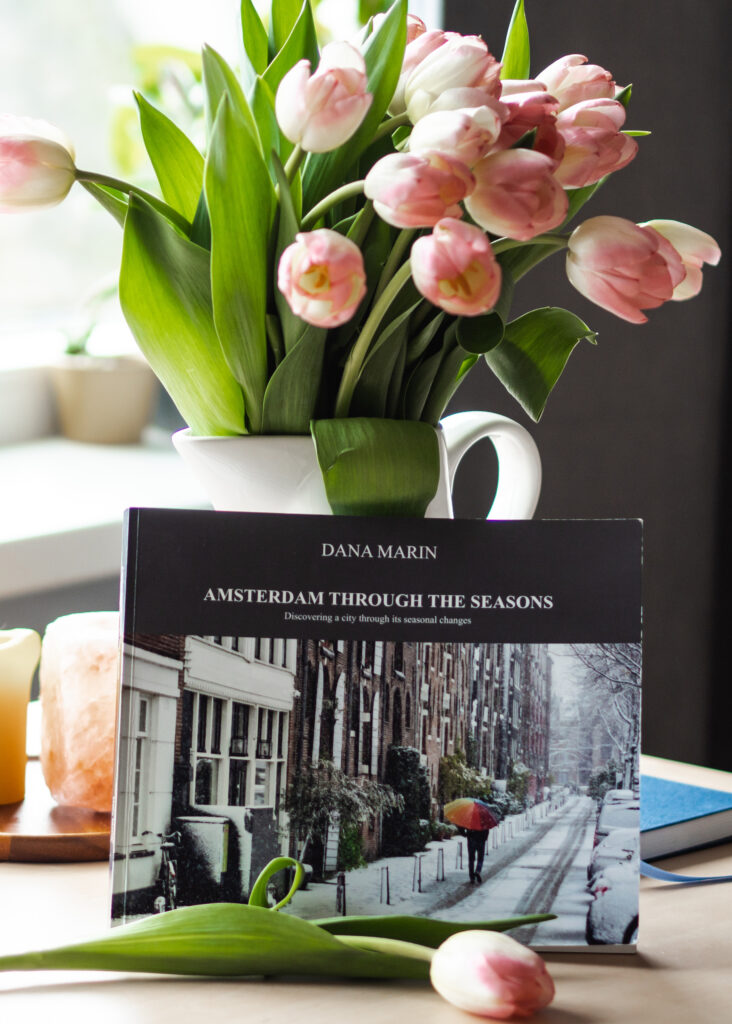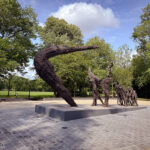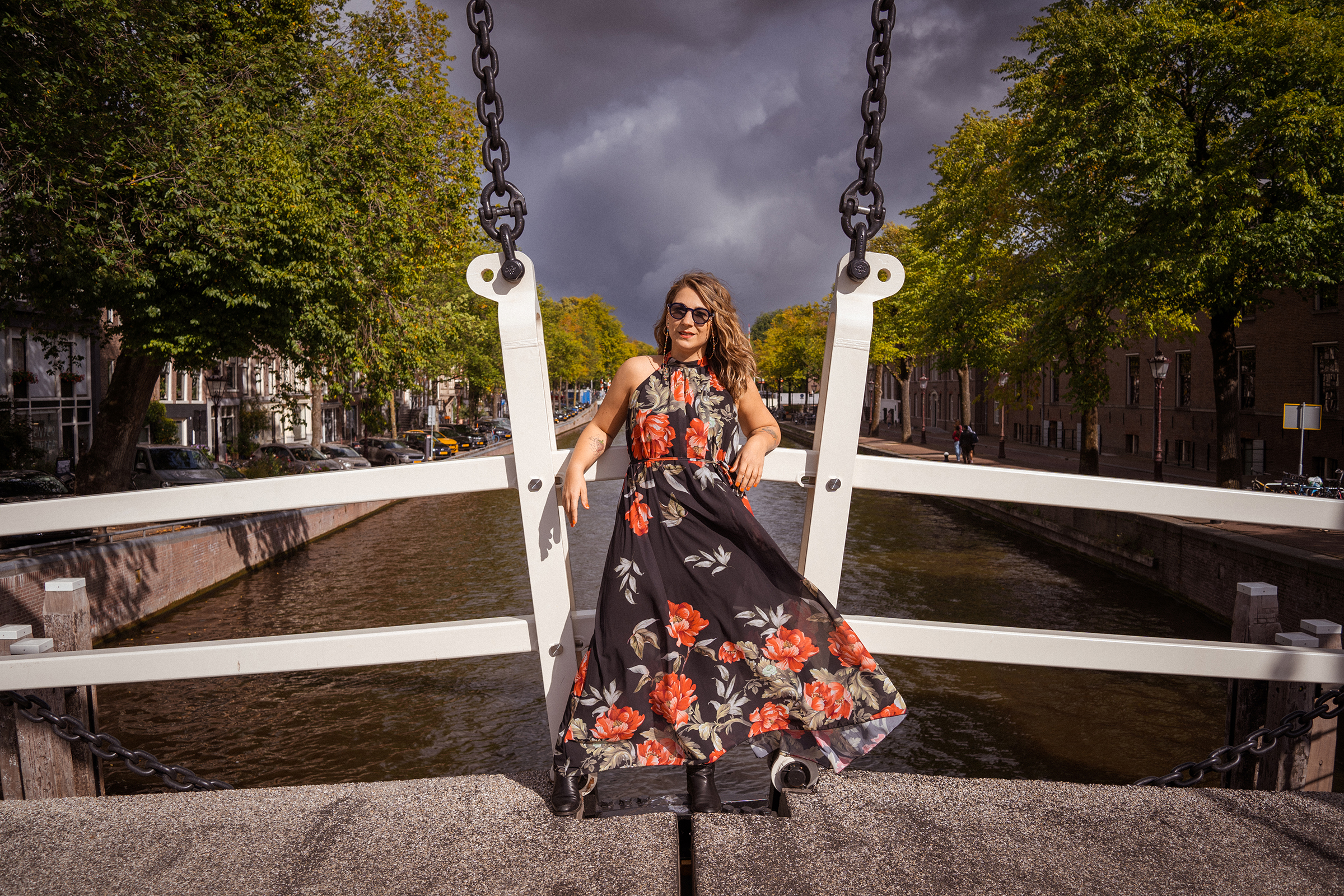We are all books. Each human has stories to tell, and each life can be given a title. If your life would be a book, what title would you give it? And which genre it would fit in? Have you ever thought about that? How about what titles would the others give to your story? Where would you be on the library shelves?
Where the books are people
Living Library is a concept that was developed in Denmark in 2000, by a group of young people who wanted to do something about the violence in society. They thought that, by open dialogue and getting to know the others on a different level, people would be less inclined to use violence against each other. The concept was a success and many Human Libraries (the initial name) sprung out in different countries. In the Netherlands, it started in 2017 in Groningen, at the initiative of a student, Martijn Bergsma.
The living library is not a static place. It functions as a multitude of events, organised all over the country, where you can register and “borrow” one book for about 20 minutes. In the Living Library, you don’t sit in silence, reading words on paper. You sit next to a person who agreed to share their life experiences with you, to answer to your burning questions on a certain topic. For each event, there is a catalogue of books, divided on topics: transgender, alcoholic, ADHD, etc. The “books” are people who volunteered to talk about their lives, hoping that will make the world a better place, one person at a time.
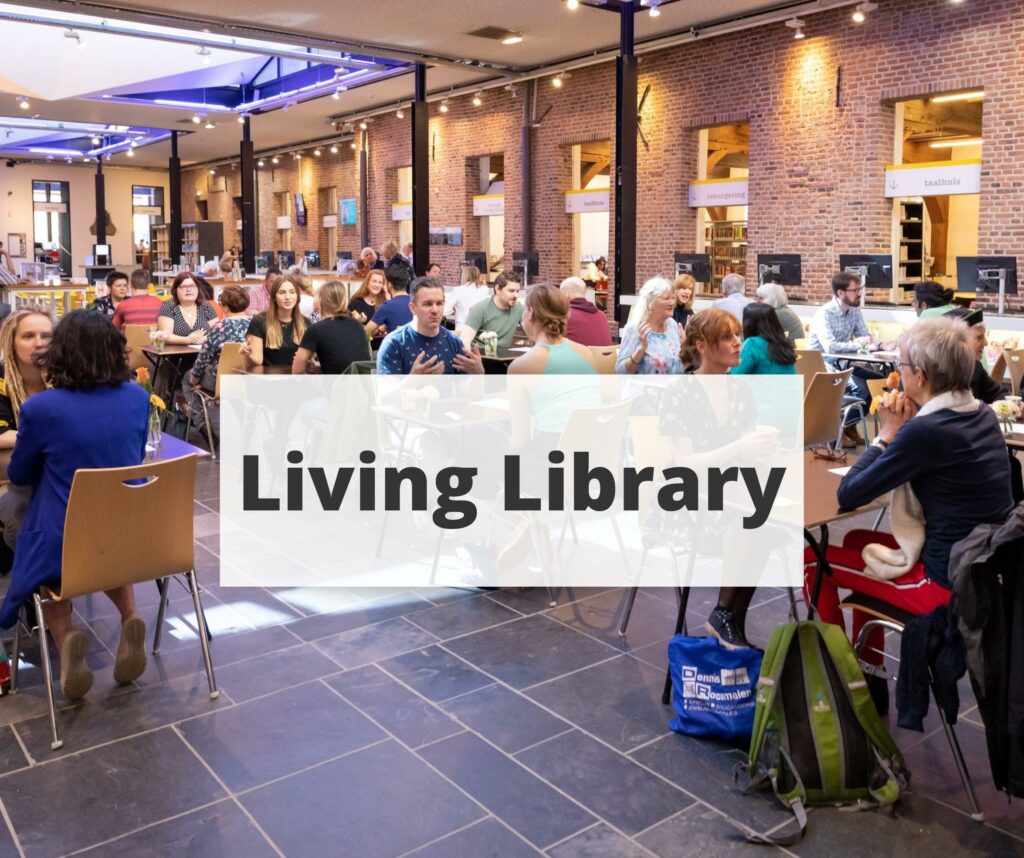
The goals of the living library (as described on their website):
- Creating a space of dialogue and understanding
- Promoting respect for Human Rights
- Passing knowledge and experience of people exposed to discrimination, stereotyping, prejudices and exclusion
- Shaping attitudes of openness and acceptance towards “otherness”.
Our society is dealing with a lot of prejudice. If we could try to walk in each other’s shoes for a while, to get to know each other, maybe the world would be a better place. I’m sure each of us has judged someone for their decisions at some point. Without knowing their entire story, their circumstances, their hopes and fears. Maybe you think a teenage mum should have used protection, not to end up in that situation; a thief shouldn’t have stolen, a sex worker could have found another job. The story is never that simple. Why not listen to it and try to understand it?
But the Living Library is not only about prejudice. It’s about meeting people who seem different from us, people who fascinate us, that we don’t have the chance to meet and talk in our life. It’s about bringing everyone to a common ground, where honest and meaningful conversation happens.
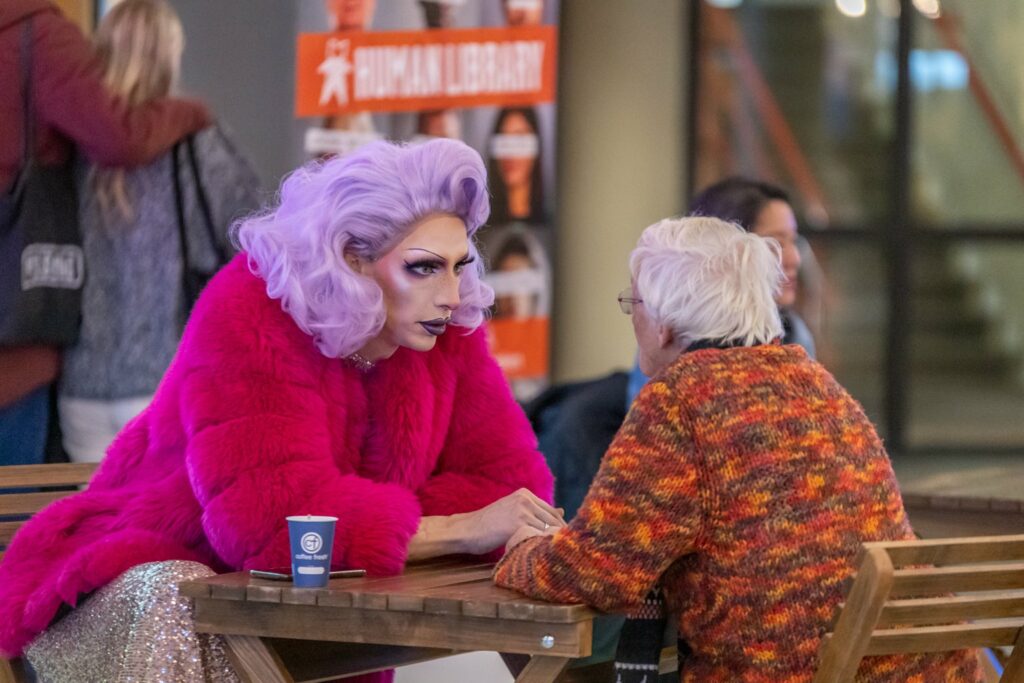
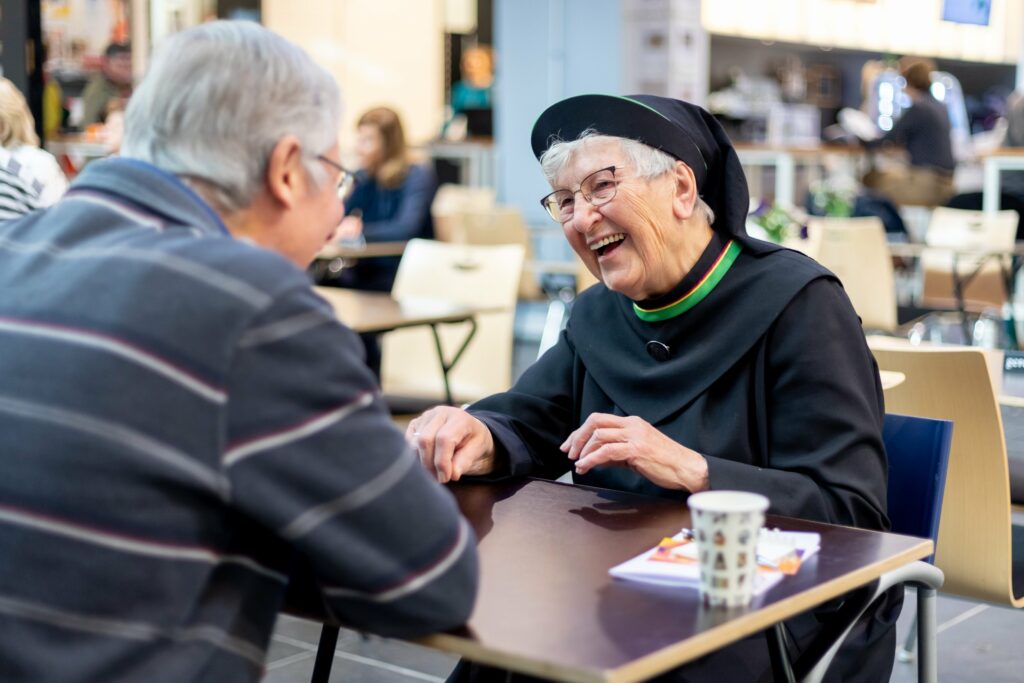
As you can imagine, the library events are not a simple thing to organise. They need to be carefully coordinated, so no one would feel harmed in any way. There is a methodology; for example, before each event, both books and readers get a training, so they know what the rules are, what their rights are and what to expect from that meeting. It’s a complex coordination, threading on sensible ground, but it works, and it attracts many “readers” every time.
To learn more about the Living Library, I asked its founder in the Netherlands, Martijn Bergsma, and one of the “books”, Micha Meinderts — who can be found in the library under the titles of “asexual” or “transgender”, to answer a few questions.
Talking to Martijn Bergsma, the founder of Living Library Netherlands.
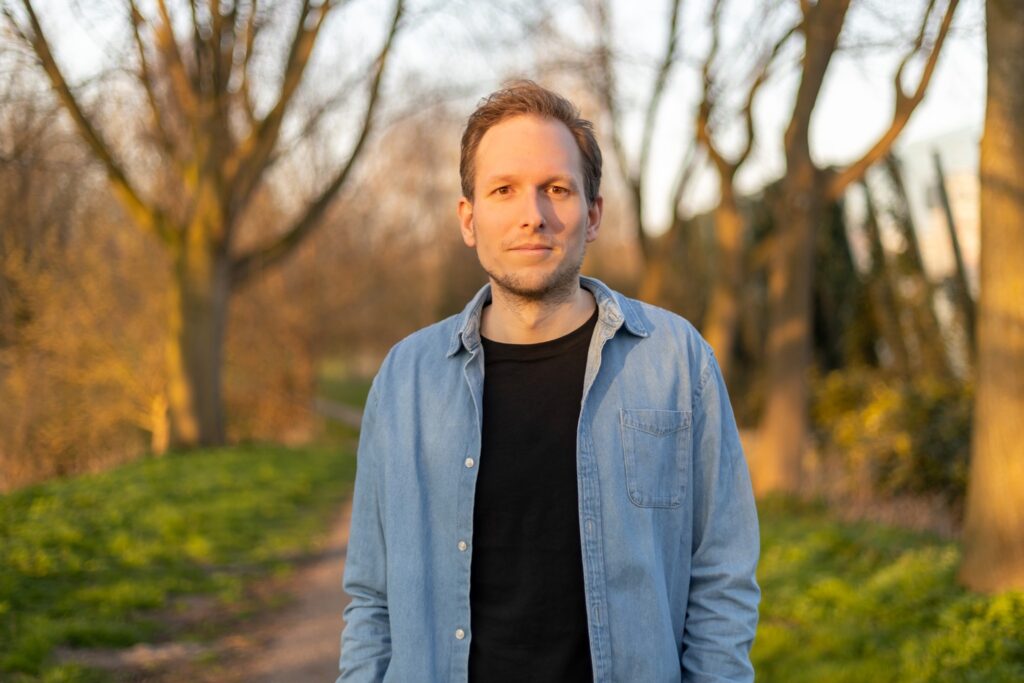
1. Hi Martijn, could you start by telling me a bit about yourself?
My name is Martijn, I am 34 years old and I live in Amsterdam-Oost. During my time as a student in Groningen, I started organising Living Library events. The first edition took place in 2014. And now everywhere in the Netherlands. It has become my job.
2. I know that the Living Library was first started in Copenhagen, Denmark, and then the concept spread around the world. When and how did the Living Library come to the Netherlands?
I saw the Living Library for the first time in Istanbul, during a training about inclusion. Immediately I knew: this is the event I should also organise in my hometown. With two other students, we simply set it up, as volunteers. After those first events, other libraries started to show interest. Thanks to funding from the European Union, via Europe Direct, I have been able to spread the event to libraries all across the Netherlands.
3. For every edition, the Library has a different catalogue. How do you find the books?
At first, it was important to check which titles or topics we should include. We realised we should have living books from different “genres”, like sexuality, gender, ethnicity, religion, background, health situation, etc. When we want a specific book, we can use our personal network or contact a particular organisation. As you may know, the NGO field in the Netherlands is quite strong, with many organisations representing certain groups of people. Finally, people can also sign up as a book via our website.
4. What is the most touching thing that happened during one of the events?
Our goal is to break prejudices and to set up a dialogue, but quite regularly we also see people who choose a certain book because they somehow deal with that topic as well. I remember, for example, how the sister of an addicted person borrowed our “Ex-addicted” book. In her family, she had never been able to talk about addiction with her brother, but now she felt like she was handed some tools to work with. Another example is an adopted person talking with our “Adopted” book. Sharing a heartbreaking experience can be so powerful.
“Sharing a heartbreaking experience can be so powerful. Usually we expect “heavy” subjects, such as “Depression” or “Suicide Attempt” not to do well, but then they could be the most read books of the day. These topics clearly fill a need. “
5. I don’t know if you can answer this, but are there any books (thematics) more popular than others?
It surprises me every time, but I cannot predict it at all. Usually we expect “heavy” subjects, such as “Depression” or “Suicide Attempt” not to do well, but then they could be the most read books of the day. These topics clearly fill a need.
6. Who should come to a Living Library event?
Anybody! We believe everybody has prejudices. But we’re not always so aware of them. And now you get the chance to actually talk to an interesting person, who is dealing with a certain prejudice. Some people are a bit scared at first, to just suddenly talk to a stranger, but in our evaluation form we always ask the reader: “Would you recommend the Living Library to others?” and nobody has ever said no. Generally people love the idea of talking one-on-one. Anything can be asked, as long as you do it with respect.
—
Martijn Bergsma
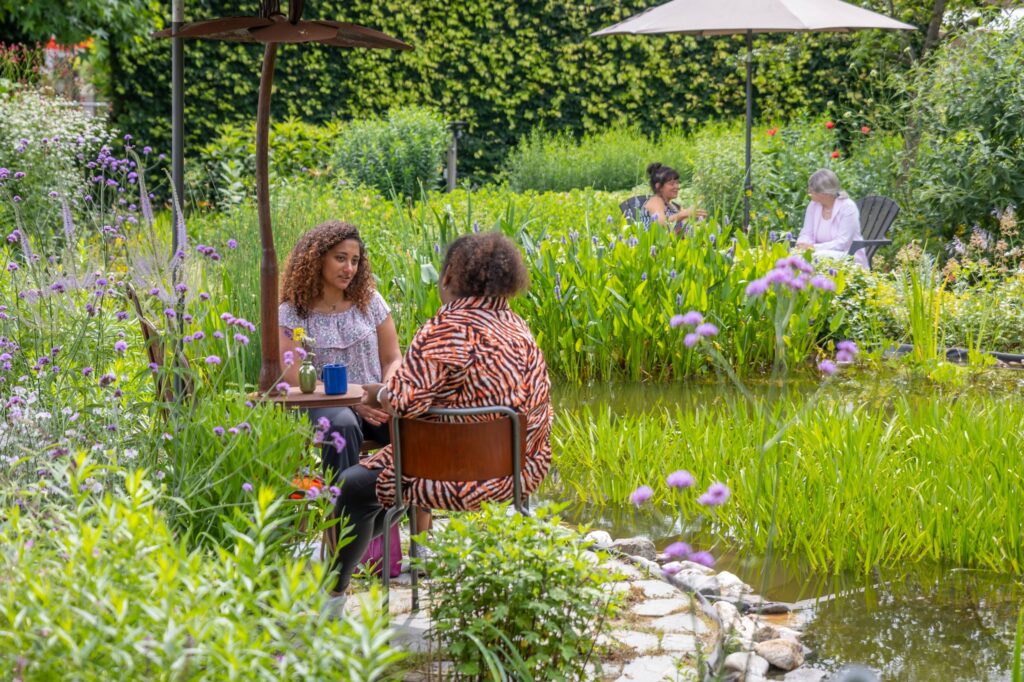
Subscribe to our newsletter!
Talking to Micha Meinderts, one of the BOOKS at the Living Library
I liked something Micha said during our talk: “I write books, and I’m also a book”. How cool is that? Micha is a writer, having published four novels and a few stories, and a regular book at the Library’s events.
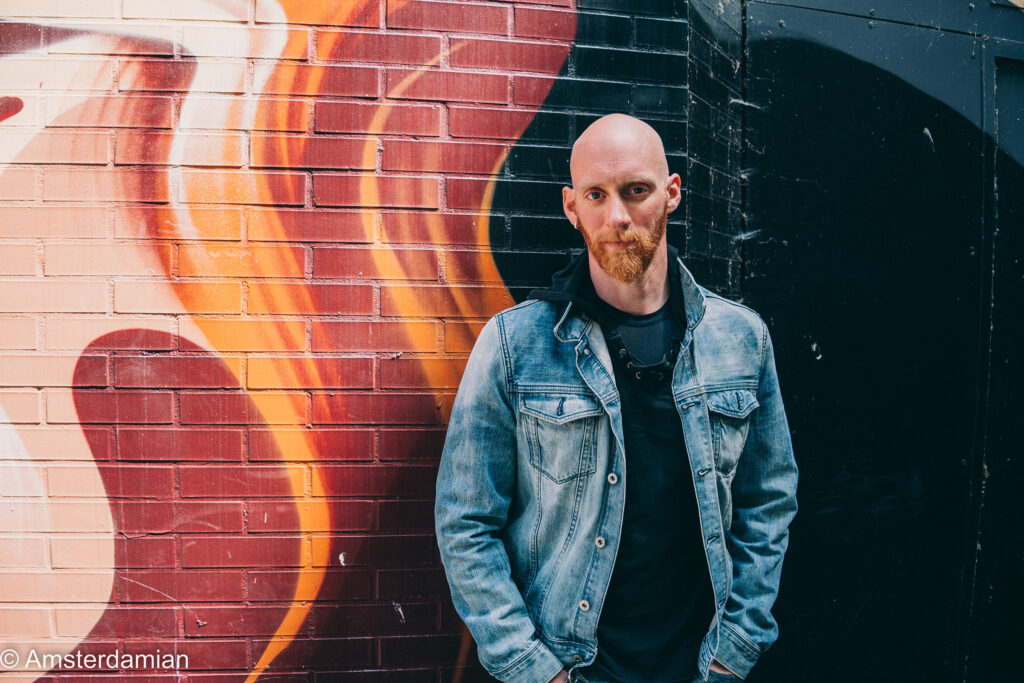
1. Hi Micha, thanks for agreeing to this interview! Let’s start by getting to know you better. Tell me about yourself.
I’m either millennial or Gen X, depending on which cutoff date you use, grown up in the middle of the country. Got married to an American dude, moved to live stateside for a while. Wrote a couple of novels. Got divorced, moved to Germany, got into the localisation business, translating video games and such.
Wrote another novel, this time more personal, about life after gender transition, moved to Amsterdam to localise e-commerce copy for sportswear and fashion. When I’m not translating or writing novels, I volunteer as a media educator for Transgender Network Netherlands and as a group leader for Transvisie, play video games, road cycle, work out in the gym, and cook healthy stuff. Mornings and nights I double as a cat bed.
2. How did you become a book at the Living Library?
About five years ago I saw a friend’s post on Facebook about his experience as a living book and, being an educator and activist (not to mention novelist – there’s something particularly satisfying about “being” something you usually just create), it piqued my interest. So I sent out an e-mail with possible titles (transgender man, asexual, novelist, remigrant). A while later, I was asked to join the first edition in Utrecht and the rest is history.
” Sometimes they’re just curious because they have no idea, sometimes they think they might be ace themselves, sometimes they want to understand a friend or family member better. I’m always emphasising that my story is just that, MY story, so it doesn’t necessarily mean that their friend or family member experiences it the same way, but usually I still manage to provide at least some insight.”
3. How was your first meeting at the Library? How about the rest?
It was hella intense. I’m an introvert and not very good with social contact, especially with strangers, and my very first Library I had seven readers, back to back, and had a date planned afterwards. Suffice to say I was exhausted, mentally and physically, not to mention hoarse. But it was such a great experience, talking to people and creating understanding about what it means to be asexual, both in my personal life and within the greater society with all its hangups about sex and sexuality.
The subsequent editions I was more prepared for the mental exhaustion and it went much better. It’s like working out in the gym — you still get tired, but it’s much easier to do the more experience you get.
Though I have my limits. Sometimes I get to do a few events almost every week and then it’s a bit much. Even though each conversation is unique, it also does get repetitive, starting off with the same story every time, so when it’s starting to sound like a rehearsed lesson, I take a break.
However, I do notice that the more often I tell the same story, the more nuanced it becomes, and I regularly find better ways to explain something just by talking about it again and again. To stay with the whole “human book” metaphor, every time I get “read”, I get to “rewrite” my story into a better version, so it’s very worthwhile for me as well.
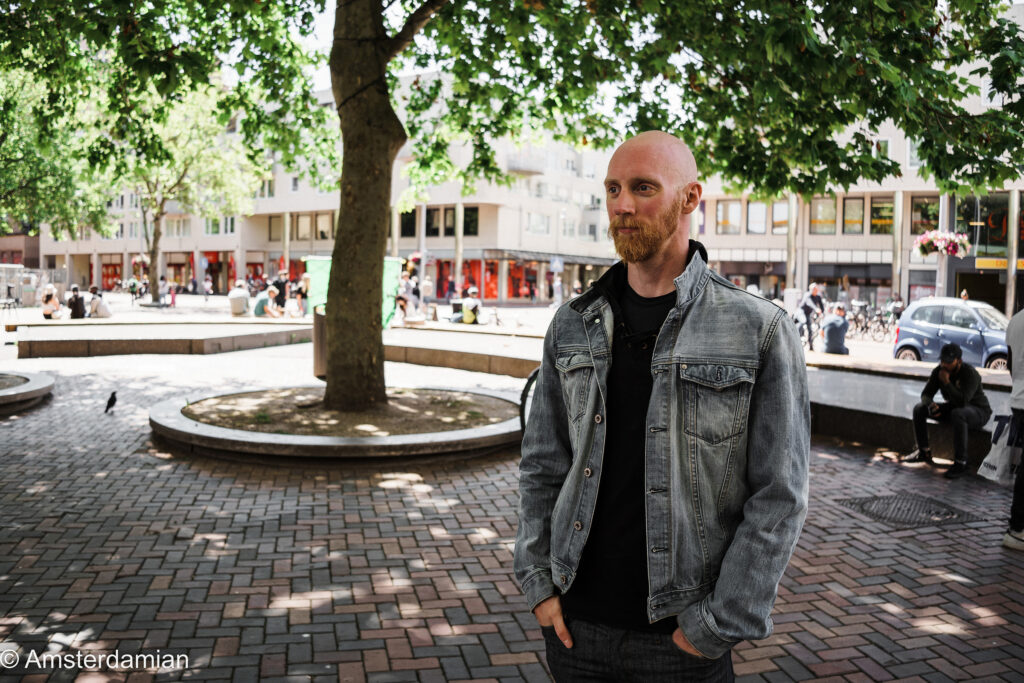
4. At the meetings, did you get the kind of questions you were expecting?
I’m not sure I was expecting anything. I have a standard introduction (“why did you pick me, and what do you think is the definition of asexuality”) and I usually take it from there. That way I can tailor the education exactly to the reader’s needs. Sometimes they’re just curious because they have no idea, sometimes they think they might be ace themselves, sometimes they want to understand a friend or family member better. I’m always emphasising that my story is just that, MY story, so it doesn’t necessarily mean that their friend or family member experiences it the same way, but usually I still manage to provide at least some insight.
5. Can you tell me one recurring question from the people you meet at the events?
People sometimes want to know how I knew, or if I expect my sexuality to change. And they get curious about how it affects my outlook on society. But most readers have their own unique set of questions, and I tend to answer the more common ones before they can be asked in my introduction. The concept expects it to be a true conversation, but I tend to hog most of the speaking time so it’s more like a monologue/lecture than an interview or a more natural conversation where I ask questions too. I do try to change that though, because I find it creates a better connection with the reader. There’s just so much to tell that I find there’s not enough time (20-30 minutes) to also delve into the reader’s experiences. After all, they come to the library to read a human book, not to get read themselves.
6. Did you have any special experiences at the library’s events?
Recently I had a discussion with a fifteen-year-old Muslim boy who was figuring out his gender and sexuality and it was very heartwarming. That generation really has figured out the good stuff. It was such an engrossing conversation it lasted twice as long as a normal session (max half an hour). After I did my regular intro, I just mostly listened to his story about his struggles with the religious community and finding support in school and among his friends. He was determined to be himself, whatever form that might take, and make that work with the traditions of his cultural background.
And another reader stuck with me because I could almost literally see his mind expand with every layer of my identity I threw into the mix. It was both humbling and hilarious to see his amazement every time he realised something new. Definitely changed his life and view on the world there.
Special mention: a middle aged woman who was sorely disappointed that as an asexual person I still had sex. She was adamant I would experience only “courtly love” (like some higher, platonic form of love) and wouldn’t accept I was just as mundane as all the others.
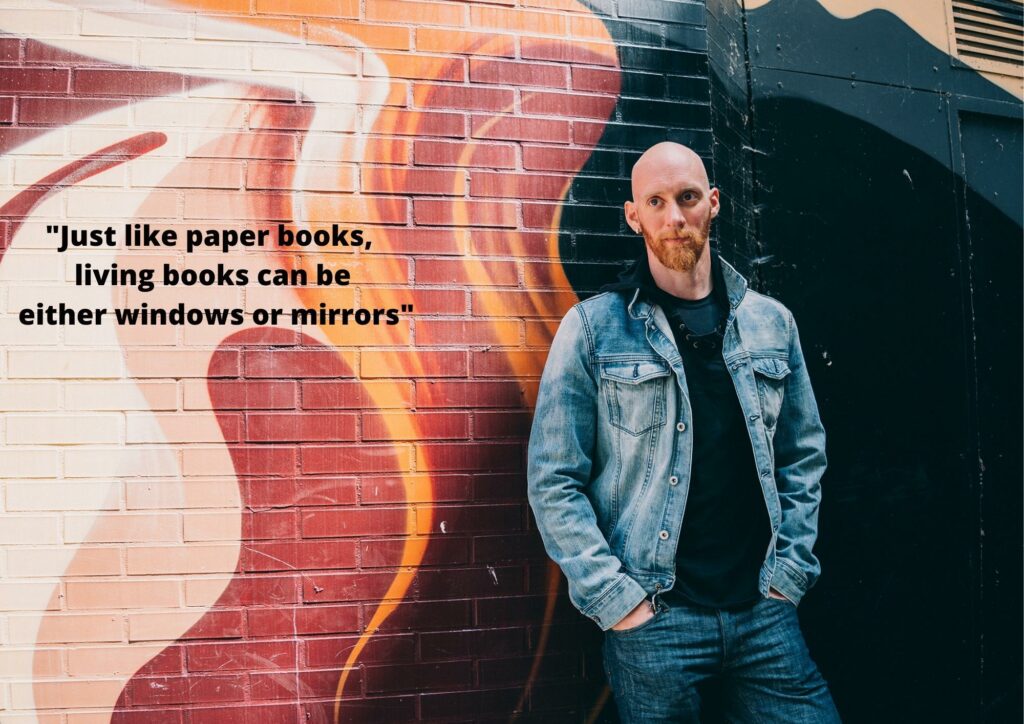
7. I was telling someone about the Library the other day and they expressed their disapproval of using labels for the people who are promoted as books: ”transgender”, ”alcoholic”, ”ADHD”, etc. What would you reply to this person?
They’re book titles, not labels. The whole point of the Living Library is that people learn to look behind and beyond labels and realise that it’s only just one aspect of someone. Don’t judge a book by its cover — but you can only learn to not do that when the book HAS a cover.
I have a couple of different titles that I can use, depending on which other books are available at an edition. None of them define me as a whole, but they’re all part of who I am, and they all come with their own set of challenges and prejudices. Sometimes I talk about all of them to the same reader, when relevant; some readers will never know all of my book titles. It completely depends on where the story leads us.
Also, without a title, it’s hard to know if you want to read a particular book. And thirdly, there’s nothing wrong with labels, as long as they get used by the person they apply to and not slapped on them by a third party. They’re just words to describe (part of) someone, often shorthand but still. It makes talking about your experiences a whole lot easier.
8. Why would you recommend people to go to the Living Library events?
It’s an amazing way of learning about people’s experiences that differ immensely from your own, or find people that went through similar things as you did. Just like paper books, living books can be either windows or mirrors. Usually the conversation skips past the small talk and dives right in, something that’s hard to come by if you just meet a stranger at a coffee shop. Everyone knows why they’re there, so there’s an immediate openness and frankness. It absolutely enriches your life, whether you just do one short conversation or you’re there from opening to closing, talking to an ex-prisoner one moment to a woman with autism the next, a nun perhaps, or someone who practises BDSM. Where else would that be possible?
9. If you could send just one message that would reach out to everyone, what would that message be?
Everyone has a story. Be prepared to listen and your world (and mind) might expand in ways you never thought possible.
—
Micha Meinderts
http://www.michameinderts.nl/en/
IG: @michameinderts
If you want to experience the Living Library events for yourself, check out their website and find the one closer to you. You can contact the Living Library for any questions.
—————————————————————–
Stay tuned for more and follow Amsterdamian on Instagram and Facebook for daily stories about life in the Netherlands. Please share this post if you liked it!
Check out my photo book: Amsterdam Through the Seasons!

